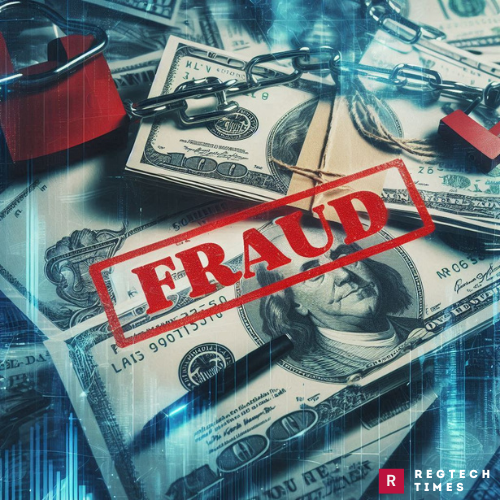In a significant development within pandemic-related financial crime, Diana Valteri, 42, and Edmond Haxhillari, 43, of Sparta, New Jersey, and Cypress, Texas, have admitted to their involvement in a substantial COVID-19 loan fraud scheme. Their guilty pleas were entered before U.S. District Judge Robert Kirsch in Trenton federal court on August 20, 2024, marking a key moment in the ongoing crackdown on fraudulent pandemic relief claims.
The COVID-19 Loan Fraud Scheme
The Coronavirus Aid, Relief, and Economic Security (CARES) Act, enacted on March 29, 2020, aimed to provide emergency financial relief to businesses and individuals suffering from the economic impact of the COVID-19 pandemic. Among its provisions was the Economic Injury Disaster Loans (EIDL) program, designed to offer low-interest loans to small businesses experiencing significant revenue losses. However, Diana Valteri and Edmond Haxhillari exploited this program through a sophisticated COVID-19 loan fraud scheme, defrauding the federal government of approximately $790,000.
From June 2020 to August 2020, the couple engaged in a fraudulent scheme by submitting false loan applications for several shell companies. These applications misrepresented the businesses as operational entities with employees and revenue, while in reality, these companies were non-existent or lacked any genuine business activities. As a result of their fraudulent claims, Valteri and Haxhillari secured substantial loan funds intended to support struggling businesses.
Joe Lewis Jefferson and Wife Plead Guilty in Major COVID-19 Fraud Scheme
Following the disbursement of EIDL funds, the couple diverted the money for their personal gain, further compounding their COVID-19 loan fraud. The wire fraud charge they face carries a maximum penalty of 20 years in prison, while the money laundering charge could result in up to 10 years. Both charges also come with hefty fines, including up to $250,000 or double the gross gain achieved by the defendants or the gross loss to the victims.
Investigation and Enforcement
This case emphasizes the increased efforts by federal authorities to address COVID-19 loan fraud. U.S. Attorney Philip R. Sellinger praised the work of various investigative agencies in bringing the case to light. Special agents from the FBI, IRS Criminal Investigation, Social Security Administration Office of the Inspector General, and Small Business Administration Office of the Inspector General collaborated to uncover and address the fraudulent scheme.
The District of New Jersey COVID-19 Fraud Enforcement Strike Force was instrumental in the investigation. This task force is one of five established by the U.S. Department of Justice to tackle large-scale pandemic relief fraud. The strike forces utilize a data-driven approach to identify and prosecute significant fraud cases, aiming to hold accountable those who exploited pandemic relief programs.
Broader Implications of COVID-19 Loan Fraud
The case against Valteri and Haxhillari highlights the critical issue of COVID-19 loan fraud and its impact on relief efforts. The CARES Act was a vital resource for many during the pandemic, and fraudulent misuse of these funds not only undermines the integrity of the relief programs but also diverts essential resources from those who truly need them. The enforcement actions against fraudsters like Valteri and Haxhillari serve as a deterrent and a reminder of the legal and ethical responsibilities associated with pandemic relief funds.
Federal Conviction of Harold Bennie Kaeding Highlights the Dark Side of COVID-19 Relief Fraud
Federal authorities have emphasized their commitment to investigating and prosecuting COVID-19 loan fraud. The collaborative efforts of multiple agencies reflect the importance of a coordinated approach to tackling these crimes. As the legal process continues, the focus remains on ensuring that those who committed fraud are held accountable and that the integrity of relief programs is maintained.
Diana Valteri and Edmond Haxhillari are scheduled to be sentenced on January 22, 2025. Their case is likely to set a precedent in the ongoing fight against COVID-19 loan fraud. As federal authorities continue to scrutinize pandemic-related financial activities, businesses and individuals are reminded of the serious consequences of fraudulently obtaining relief funds.
The case of Valteri and Haxhillari serves as a clear example of the repercussions associated with COVID-19 loan fraud. It reinforces the necessity for vigilance and integrity in managing relief programs designed to support those affected by economic disruptions. As investigations and prosecutions progress, the message remains clear: those who attempt to defraud pandemic relief programs will face substantial legal consequences.


